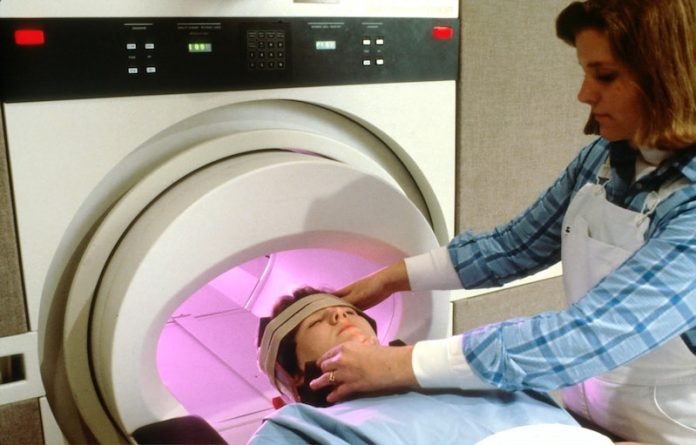
In a study from Cedars-Sinai, scientists found that some patients diagnosed with behavioral-variant frontotemporal dementia (bvFTD) may instead have a cerebrospinal fluid leak, which is often treatable.
Behavioral-variant frontotemporal dementia is an incurable condition that robs patients of the ability to control their behavior and cope with daily living.
Cerebrospinal fluid (CSF) circulates in and around the brain and spinal cord to help cushion them from injury. When this fluid leaks into the body, the brain can sag, causing dementia symptoms.
Many patients with brain sagging—which can be detected through MRI—go undiagnosed, and he advises clinicians to take a second look at patients with telltale symptoms.
The team says a knowledgeable radiologist, neurosurgeon or neurologist should check the patient’s MRI again to make sure there is no evidence for brain sagging.
Clinicians can also ask about a history of severe headaches that improve when the patient lies down, significant sleepiness even after adequate nighttime sleep, and whether the patient has ever been diagnosed with a Chiari brain malformation, a condition in which brain tissue extends into the spinal canal.
Even when brain sagging is detected, the source of a CSF leak can be difficult to locate.
When the fluid leaks through a tear or cyst in the surrounding membrane, it is visible on CT myelogram imaging with the aid of a contrast medium.
The team recently discovered an additional cause of CSF leak: the CSF-venous fistula. In these cases, the fluid leaks into a vein, making it difficult to see on a routine CT myelogram.
To detect these leaks, technicians must use a specialized CT scan and observe the contrast medium in motion as it flows through the cerebrospinal fluid.
In this study, the team used this imaging technique on 21 patients with brain sagging and symptoms of bvFTD, and they discovered CSF-venous fistulas in nine of those patients.
All nine patients had their fistulas surgically closed, and their brain sagging and accompanying symptoms were completely reversed.
The remaining 12 study participants, whose leaks could not be identified, were treated with nontargeted therapies designed to relieve brain sagging, such as implantable systems for infusing the patient with CSF.
However, only three of these patients experienced relief from their symptoms.
If you care about dementia, please read studies that your walking speed may tell your risk of dementia, and these high blood pressure drugs could prevent dementia.
For more information about brain health, please see recent studies about antioxidants that could help reduce dementia risk, and Coconut oil could help improve cognitive function in Alzheimer’s disease.
The study was conducted by Wouter Schievink et al and published in Alzheimer’s & Dementia: Translational Research and Clinical Interventions.
Copyright © 2023 Knowridge Science Report. All rights reserved.



